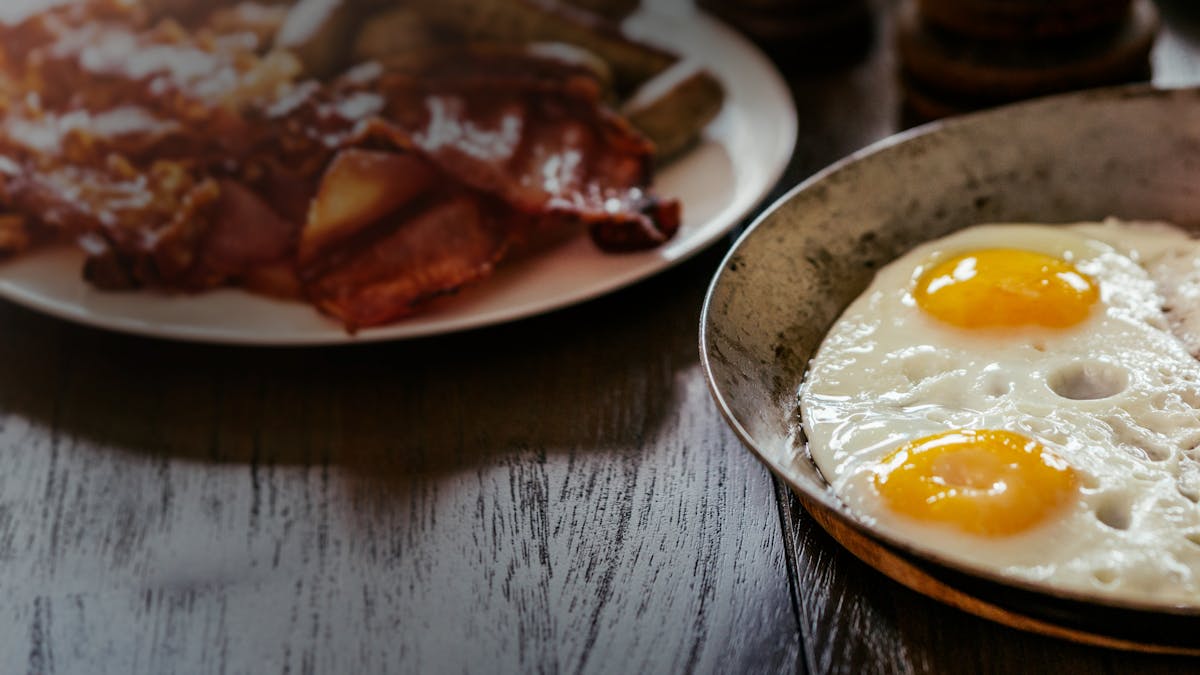
Cholesterol and
low-carb diets
By Franziska Spritzler, RD, medical review by Dr. Bret Scher, MD – Updated January 20, 2019
Cholesterol increase on low carb
How to lower cholesterol on low carb
Cholesterol is often viewed negatively due to its historical association with heart disease. However, its role in heart health is controversial.
1
Read on to learn what cholesterol is, how your body uses it, why low-carb and keto diets may lead to a change in blood cholesterol levels, and whether you should be concerned if your cholesterol increases with a keto or low-carb lifestyle.
The basics: What is cholesterol?
Cholesterol is a waxy substance that is essential for the life of all animals, including us humans.
2
Your body produces cholesterol in every cell of your body, and uses it for many necessary bodily functions, including these:
Cell integrity: As an integral part of every cell membrane in the body, cholesterol is required for maintaining cell structure and fluidity.
Hormone synthesis: Cholesterol is needed to make estrogen, testosterone, cortisol, and other hormones, such as vitamin D3.
Creation of bile acids: Your liver converts cholesterol into bile acids, which help you absorb fats and the essential fat-soluble vitamins A, D, E and K.
Myelin formation: The myelin sheath that surrounds and protects nerve cells necessarily contains plenty of cholesterol.
3
Your body makes most of the cholesterol that is found in your bloodstream. It’s primarily produced in the liver.
Dietary cholesterol – found in animal foods like eggs, shellfish, cheese and organ meat – makes up a smaller portion of your blood cholesterol pool.
Unlike fat, which contains 9 calories per gram, cholesterol has no calories. Because it’s present in foods in very small amounts, it’s measured in milligrams instead of grams. Most fatty meats and whole-milk dairy products contain just a little cholesterol, whereas some shellfish and organ meats are high in cholesterol, yet low in fat.
After years of advice to toss the egg yolks and eat only the whites, we’ve learned that eating cholesterol-rich foods doesn’t really impact blood cholesterol levels very much at all. In fact, when most people take in more cholesterol from food, their liver produces less, resulting in stable blood cholesterol.
4
How is cholesterol transported in your body?
Cholesterol is absorbed from your digestive tract and circulated throughout your bloodstream, where it can be used by cells as needed. It then returns to the liver to be converted into bile acids or used for other purposes.
Importantly, cholesterol doesn’t travel around your bloodstream on its own. As a hydrophobic (water-repelling) substance, it must be packaged within lipoproteins to move around the bloodstream. So that means when we talk about blood cholesterol levels, we’re referring to the amount of cholesterol contained in different lipoprotein particles. In addition to cholesterol, these lipoprotein particles also contain special proteins called apolipoproteins, triglycerides and other compounds.
Cholesterol packaged in lipoproteins that contain apolipoprotein B is referred to as LDL (low density lipoprotein) cholesterol, or LDL-C (referred to by the more common term LDL for the rest of this guide).
5
Cholesterol packaged in lipoproteins that contain apolipoprotein A is referred to as HDL (high density lipoprotein) cholesterol, or HDL-C (referred to by the more common term HDL for the rest of this guide).
Despite what we’ve all heard, there’s actually no such thing as “good” or “bad” cholesterol; there is only one type of cholesterol. Your LDL and HDL values refer to how much cholesterol is carried in your HDL and LDL lipoprotein particles. In fact, the same cholesterol is continuously transferred among these and other types of lipoproteins as they make their way through the bloodstream.
LDL is often referred to as “bad” cholesterol because high levels have been linked to increased heart disease risk. By contrast, HDL is frequently called “good” cholesterol. One of HDLs main functions is to carry cholesterol back to the liver to be used as needed. Higher levels of HDL have been associated with decreased cardiovascular disease (CVD) risk.
What are “normal” cholesterol levels?
The recommended targets for cholesterol vary slightly among different countries and health agencies. The US National Institutes of Health website lists the following optimal cholesterol and triglyceride values, measured after a fast of 9-12 hours:
Total cholesterol: < 200 mg/dL (5.2 mmol/L)
LDL cholesterol: < 100 mg/dL (3.4 mmol/L)
HDL cholesterol: > 40 mg/dL (1.04 mmol/L) for men, > 50 mg/dL (1.3 mmol/L) for women
Triglycerides: < 150 mg/dL (1.7 mmol/L)
LDL levels >160 mg/dL (4.1 mmol/L) are considered high, and levels 190 mg/dL (4.9 mmol/L) and above are considered very high.
Many factors can affect your blood cholesterol, including genetics, hormonal changes, injury, and certain health conditions. For instance, people with untreated hypothyroidism often have elevated cholesterol.
A person’s diet can also influence cholesterol levels – sometimes significantly.
Some would argue, however, that these cut-off points are arbitrary and do not apply to all individuals depending on their baseline metabolic health and overall health. For instance, far too many examples exist of people with low LDL levels having heart attacks and those with high LDL having improved longevity. So while these numbers make sense for whole populations, tremendous individual variation exists.
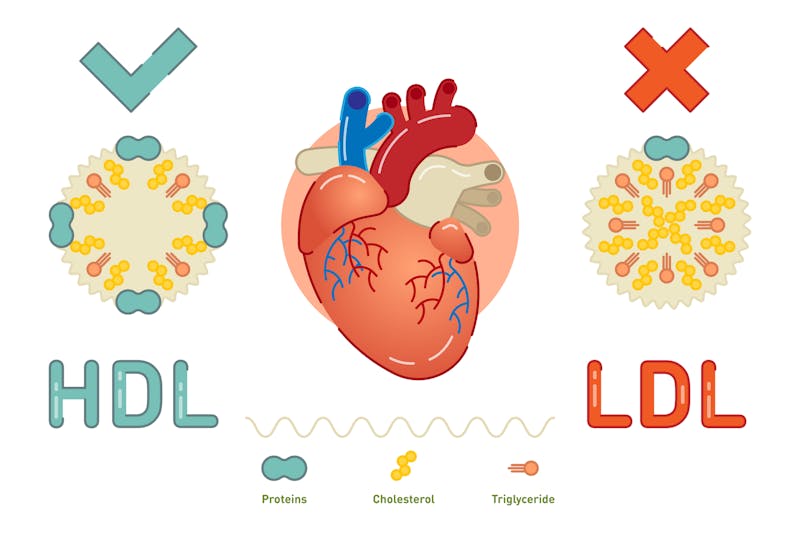
How does keto or low-carb eating affect your cholesterol?
In most people who follow keto or low-carb diets, blood cholesterol goes up very little, if at all. Some even experience a drop in LDL cholesterol after starting low carb. However, others experience an increase in both LDL and HDL cholesterol levels.
6
A rise in cholesterol during keto or low-carb eating may be related to losing weight. It’s been known for decades that major weight loss often leads to a temporary rise in LDL cholesterol.
7
Lipidologist Dr. Thomas Dayspring has found that around a third of his patients experience increased LDL as a result of weight loss. For this reason, it could make sense to wait until your weight has been stable for a few months before assessing your cholesterol levels.
For an estimated 25 to 30% of people – whether weight loss occurs or not – LDL cholesterol goes up significantly in response to very-low-carb diets, sometimes by 200% or more. Many of these folks seem to belong to a group that Dave Feldman at Cholesterol Code refers to as lean mass hyper-responders (LMHRs). These often healthy people are sometimes shocked to discover that their LDL cholesterol has soared above 200 mg/dL (5.2 mmol/L) after going keto.
Feldman’s theory about why this happens is based on research he’s conducted on himself and hundreds of other low-carbers over the past two years. He states that the higher energy demands, lower body fat stores, and lower glycogen stores in these LMHRs trigger the liver to increase production of lipoprotein particles so that triglycerides (fat) can be transported to cells for use as fuel. Since cholesterol travels along with the triglycerides, blood cholesterol levels rise as the liver pumps out more lipoproteins to keep up with the body’s energy demands.
Cholesterol synthesis and absorption are complex mechanisms that are influenced by nutrition, genes, and other factors. Therefore, it isn’t really surprising that a portion of low-carb dieters experience significant changes in their blood cholesterol levels.
According to lipidologist Dayspring – who endorses low carb for those with insulin resistance – the dramatic rise in LDL cholesterol in some people following the low-carb, keto diet is due to high saturated fat intake and/or producing a lot of ketones, which can be used for cholesterol synthesis.
Should you be concerned if your cholesterol increases with low-carb eating?
This is an emerging area of research that is currently the focus of a great deal of debate and uncertainty.
Traditional experts in the field of lipids and heart disease view elevated LDL cholesterol with concern because it typically reflects a high concentration of LDL particles (LDL-P) circulating in the bloodstream.
Excessive LDL particles have been found to be associated with the development of atherosclerosis, the underlying cause of heart disease. In atherosclerosis, LDL particles are known to end up in damaged artery walls, and connected to an inflammatory response. Over time, cholesterol, calcium, white blood cells and other substances accumulate at the site to form a plaque. Most heart attacks and strokes are caused when a plaque ruptures and forms a clot that blocks arterial blood flow.
The length of time that arteries are exposed to high levels of LDL particles is believed to play a significant role in the development of atherosclerosis. Smaller LDL particles typically spend more time in the bloodstream than larger particles do, making them easier targets for oxidation and incorporation into plaque.
8
Moreover, people who have a lot of small LDL particles tend to have low HDL cholesterol and elevated triglycerides – all of which are markers of insulin resistance and reflect increased cardiovascular disease risk.
Even though small LDL particles may be especially problematic, some large studies have also found an association between high concentrations of large LDL particles and heart disease.
9
Despite these associations between high concentrations of LDL particles and heart disease, research has consistently shown that keto diets help reduce heart disease risk factors in people with diabetes and other insulin-resistant conditions.
10
Granted these are not outcome trials, showing an actual reduction in heart attacks, but those trials simply don’t exist one way or the other. Yet the reduction in risk factors certainly suggests that we may eventually see those beneficial results.
A 2009 study comparing a low-fat diet to a very-low-carb diet in people with metabolic syndrome found that the very-low-carb diet was more effective at reducing many cardiovascular health markers, including:
11
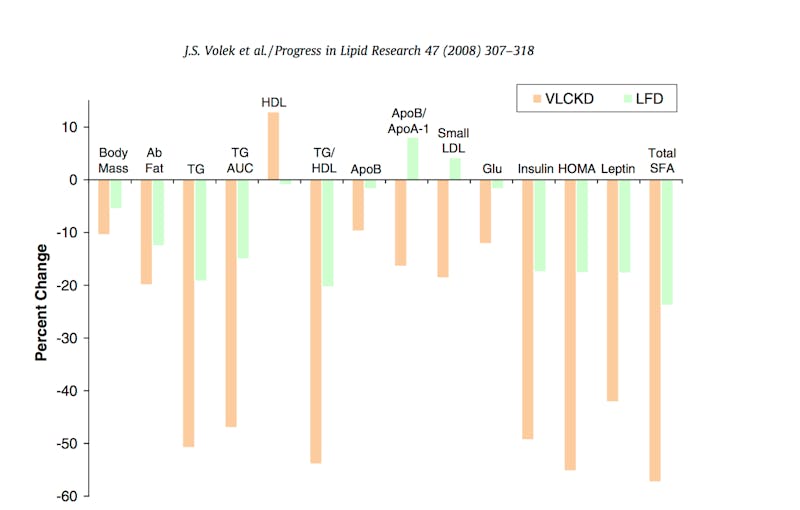
Decrease in body fat and abdominal fat
Decrease in triglycerides
Increase in HDL cholesterol
Decrease in small LDL particles
Lower blood glucose levels
Lower insulin levels
Increase in insulin sensitivity
The fact that so many risk factors remain stable or improve with carb restriction – even if LDL cholesterol levels increase – demonstrates the importance of not viewing any one value in isolation. Instead, we should always look at the body as a whole system.
Moreover, although other experts in the field disagree, the authors of a recent comprehensive review of major studies on heart disease concluded that elevated LDL cholesterol should not be considered a causal factor.
12
Dr. Dayspring, however, urges caution. In his paper “Lipidaholics Anonymous Case 291: Can losing weight worsen lipids?” he states:
“The advocates of low-carb diets say there is no study showing harm of elevated LDL-P and LDL-C in patients who have eliminated or drastically reduced their insulin resistance and inflammatory markers by low carbing. That is true, but what they want to ignore is that there is no data anywhere that shows they are an exception.”
Many low-carb proponents, however, counter that none of the studies showing a connection between elevated LDL and heart disease were conducted in people eating keto or low-carb diets.
Dave Feldman is trying to gather as much data as possible about people who have had this experience, and over time, it may very well provide valuable information. If you are a hyper-responder and would like to be part of his ongoing research, please get in touch with him by commenting on one of his posts at www.cholesterolcode.com.
At this time, because there aren’t any formal studies that have looked at this response, we don’t have the ability to predict what will happen long term with people who get very high LDL cholesterol on a low-carb diet. We simply don’t know yet.
Five ways to lower your LDL on a keto or low-carb lifestyle
Regardless of the uncertainty regarding elevated LDL cholesterol in low-carbers, there’s no need to abandon this way of eating and its many benefits.
Here are a five ways you can reduce your total and LDL cholesterol levels while maintaining a keto or low-carb lifestyle. Consider trying them in this order.
1. Avoid Bulletproof coffee
Bulletproof coffee refers to adding butter, coconut fat or MCT oil in coffee. Don’t drink significant amounts of fat at all when you’re not hungry. This alone can sometimes normalize elevated cholesterol levels.
13
2. Eat only when hungry
Only eat when hungry and consider adding intermittent fasting. This consistently reduces cholesterol levels.
3. Eat more unsaturated fats
Unsaturated fats include fats like olive oil, fatty fish and avocados. Whether it will improve your health is unknown, but it will lower your cholesterol. And if your cholesterol levels are abnormally high that may be enough of a reason, to minimize potential risk.
Preferably avoid processed vegetable and seed oils, which are loaded with inflammatory omega-6 fatty acids. Instead, select natural fats like olive oil, macadamia oil, and avocado oil.
4. Eat LDL-lowering keto-friendly foods
These low-carb plant foods may help lower cholesterol levels somewhat:
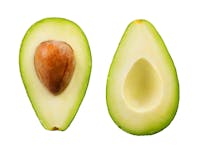

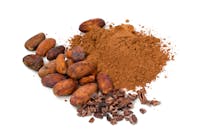
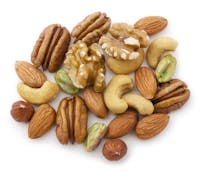
Avocado: An analysis of 10 studies found that eating avocado on a regular basis led to a significant decrease in LDL cholesterol.
14
Green vegetables: Dark leafy greens and cruciferous vegetables bind to bile acids, which are excreted as waste rather than reabsorbed in the gut, ultimately resulting in slightly lower blood cholesterol. To maximize this effect, you may want to steam your greens rather than eating them raw.
15
Cocoa and dark chocolate: In addition to lowering LDL cholesterol, cocoa and dark chocolate might help protect LDL from becoming oxidized or damaged.
16
In order to get these benefits, make sure to choose chocolate that contains at least 85% cocoa.
Nuts and seeds: Nuts and seeds are rich in fiber and monounsaturated fats, which can help lower cholesterol. One analysis of 25 studies found that eating two servings of nuts per day reduced LDL cholesterol by an average of 7%.
17
5. Eat more carbs
Finally, if step 1-4 are not enough: Consider whether you really need to be on a strict keto diet for health reasons.
If a more moderate or liberal diet (e.g. 50–100 grams of carbs per day) can still work for you, it will also likely lower your cholesterol. Just remember to choose good unprocessed carb sources (e.g. not wheat flour or refined sugar).
Bonus: K2
This is still speculative and no high-quality evidence exists yet. But making sure you eat enough foods containing vitamin K2 might help reduce the risk of atherosclerosis.
Vitamin K exists in two forms: K1 and K2. Vitamin K1 is found in plants and is involved in blood clotting. By contrast, vitamin K2 is found mainly in animal products – and might help protect heart health by keeping calcium in your bones and out of your arteries.
18
The best sources of vitamin K2 include liver, eggs, grass-fed dairy products and chicken.
Advanced testing
As mentioned above, sometimes a rise in LDL cholesterol is temporary, especially during weight loss. However, if yours remains very high and especially if you have additional risk factors (family history of heart disease, certain genetic markers, diabetes, or smoking), you may want to look into having the some advanced testing performed. They may give a clearer indication of your risk profile and state of health, compared to conventional blood cholesterol levels alone:
NMR spectroscopy (Nuclear Magnetic Resonance): provides detailed information about your LDL and HDL particle sizes and counts, along with an insulin resistance score that reflects your risk of developing diabetes.
CAC scan (Coronary Artery Calcium): measures calcium accumulation in your arteries in order to identify early signs of heart disease.
CIMT test (Carotid intima-media thickness): measures the thickness of the inner layer of your carotid artery in order to identify atherosclerosis.
Recommended viewing and reading
Videos
Dave Feldman: The cholesterol network system
Dr. Andrew Mente: Dietary fat and cardiovascular disease
Dr. Malcolm Kendrick: Is cholesterol the cause of heart disease?
Dr. Peter Attia: The straight dope on cholesterol
Articles
Dr. Peter Attia: The straight dope on cholesterol (part 1 of 9)
Dr. Thomas Dayspring:Understanding the entire lipid profile
Cholesterol Code: Are you a lean mass hyper-responder?
All articles and guides by Franziska Spritzler
Franziska Spritzler is a registered dietitian, author and certified diabetes educator who takes a low-carb, real-food approach to diabetes, weight management and overall health.
Vegetable oils: What we know and what we don’t
GUIDE Vegetable oils have quickly become a major source of calories in our food supply. Is that a good thing? To find out, let’s review what we know, and what we don’t know
The top 10 ways to eat more fat
GUIDE Are you eating enough fat on the keto diet? Find out the best 10 ways on how to eat increase your fat intake. Get ready for a new, luscious take on deliciousness!
Heart disease and cholesterol
Diet Doctor Podcast #9 — Dr. Ron Krauss
"My doctor urged me to take statins"
What about cholesterol?
Statin Nation
The cholesterol network system
Statin Nation II
Should you worry about high cholesterol?
How cholesterol really works – Dave Feldman
The highway to poor health
Comments
Comment
Don’t miss out!
Stay updated like 500,000+ subscribers with our weekly Diet Doctor newsletter.
Subscribe
Diet Doctor © 2019


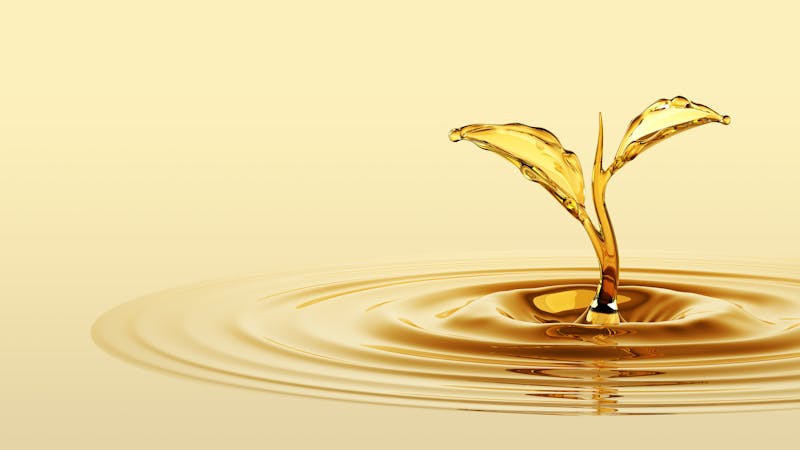

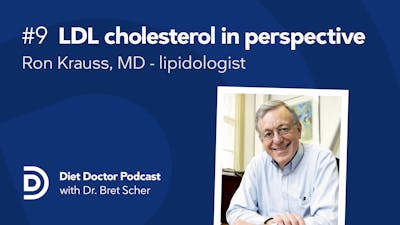
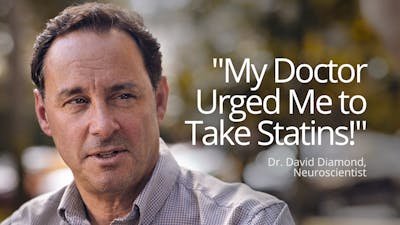
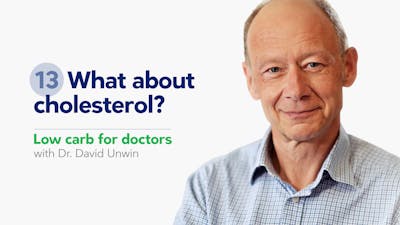
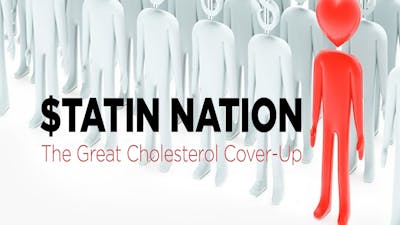
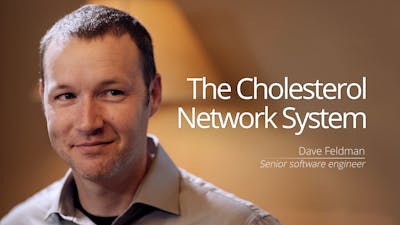
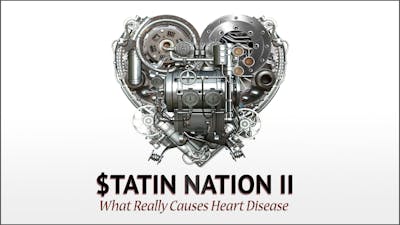

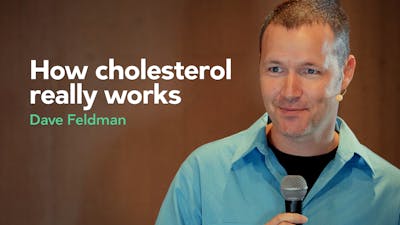
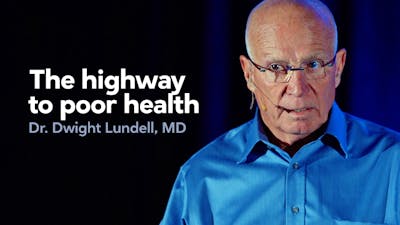

Comments
Post a Comment